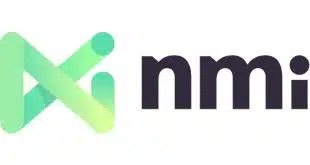The Electronic Transactions Association joined seven other financial trade groups in opposing a Republican-backed bill in the House of Representatives that would levy a 5% tax on cross-border money transfers to fund President Trump’s proposed border wall.
Introduced in January by U.S. Rep. Andy Biggs, R-Ariz., H.R. 85 would require money-transfer providers to collect a 5% “remittance fee” from the sender if the recipient is outside the United States. The money raised would go into a U.S. Treasury Department account holding funds to design and build “a barrier along the international border between the United States and Mexico,” the bill’s text says.

The “Fund and Complete the Border Wall Act” has other funding mechanisms, including a $2,000 penalty on foreign aid to Mexico and other countries for every illegal alien apprehended. Up to 5% of the funds could be used to buy and maintain vehicles and equipment used by the U.S. Border Patrol.
“Even with a divided legislative branch, we can still put security above politics to protect our constituents,” Biggs said in a press release. “I encourage my colleagues—on both sides of the aisle—to support my efforts to fund and build the wall.”
But the bill stands little chance of passage in the Democratic-controlled House. A similar measure Biggs introduced last August, when Republicans controlled both houses of Congress, failed to pass. So did another bill that would have imposed a 2% wire-transfer tax to fund a border wall. But the financial groups still wanted to go public with their objections to Biggs’ latest effort.
“It’s bad policy to tax consumers moving their money,” Scott Talbott, senior vice president of government affairs at the Washington, D.C.-based ETA, tells Digital Transactions News. He adds that the payments trade group also would oppose any state bill that would tax money transfers.
Besides the ETA, other signatories to a Feb. 28 letter to Congress opposing the bill include the American Bankers Association, the Consumer Bankers Association, the Bank Policy Institute, the Independent Community Bankers of America, the Money Services Business Association, the Money Services Round Table, and the National Money Transmitters Association.
“The consumer tax in H.R. 85 would increase the cost of remittance transfers, driving consumers out of regulated financial services and forcing these money flows underground,” the letter says.
Biggs’s bill has 10 co-sponsors, all Republicans. It has been referred to no fewer than seven House committees, but no hearings have been held.
The whole wall-financing issue has become more complicated since Biggs introduced H.R. 85. After much haggling and a 35-day partial government shutdown, Congress passed a funding bill that appropriated far less than the $5.7 billion Trump wanted for the wall. In response, Trump has declared a national emergency to get needed funds, a measure Democrats and even some Republicans oppose.





